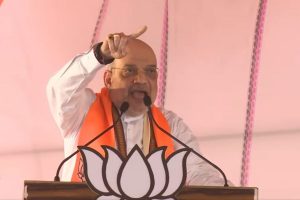Some managers have shown personal courage and ingenuity in creating safe spaces in which they can pursue development work. Their reward is not an early promotion or early transfer. Their families stay far away in towns where the faculties for education and health care are at least satisfactory. Their transfer is ruled out because there are no replacements to relieve them. Before I took up a full-time career in development banking I worked as a journalist focusing on the development sector. I wrote extensively in both the national and international press and travelled extensively in the remote hinterland. This experience provided me with a firsthand idea of rural problems and it motivated me to become a part of the developing revolution. As a journalist, I could never visualise the hazards of a career in villages. All along I had been protected with an important identity card which provided me ease of access to even the most powerful bureaucrats. It gave me much-needed security and protection from local leaders.
A village is served in too many conflicting ideologies and your city breeding doesn’t adequately weaponise you to deal with the crude strategies of local leaders. In the heady world of policy and investment conferences, it is easy for policy makers to forget the incredible tenacity and endurance demanded of grassroots development workers. Everywhere, we hear people talking about a crisis of leadership, yet we constantly meet extraordinary leaders who tenaciously take on the world’s toughest problems, even at risks to their lives and reputation. We see a generation yearning for shared values, goodness, a shared sense of what is right. It is easier to be an entrepreneur than to be a leader. Effecting real change requires both. As the great Nigerian novelist, Chinua Achebe who we lost recently wrote: “Leadership is a sacred trust like priesthood in civilised, humane religions.
Advertisement
No one gets into it lightly or unadvisedly because it demands qualities of mind and discipline, of body and will, far beyond the need of the ordinary citizens.” Berating or patronising rural folks is both culturally and professionally the most undesirable extension of any rural development executive’s personal trait. The inability to put oneself in the shoes of the poor and to keep on living the same way thinking “thank god I don’t have to live that way” just doesn’t work. Unfortunately, most aid personnel have cultivated this mindset and approach. Much and warranted attention is paid to the lives of recipients of aid and benefits of social programmes ~ their household lives, saving habits, gender relations, etc. It’s held that a key to measuring the effectiveness of aid is contained in such details.
Rarely, however, is the lens turned on the lives of development workers themselves: how workers’ moral beliefs interlink and conflict with their initial motivations, how they relate to aid beneficiaries, their local NGO peers, and other staff, the effect of transient lifestyles and insider language, and the security and family issues that come with choosing such a career. Personal courage and values count. Whatever refined city values we hold so dear, they are tested in this field. Peaceful coexistence with political agents remains an ongoing challenge. Senior bureaucrats are smart enough to leave a little paper trail behind to provide clues to their motives. Junior officials are not intelligent enough and their naivety also imposes severe handicaps on them. They are also under direct fire as they serve as the primary interface of the administration. The system gives no protection to the sincere and honest among them. A bureaucrat once told me if he cleared files immediately, he might face a vigilance inquiry as it would be perceived that he had acted in undue haste. The soon to retire bureaucrat decided that the best option was to pass the buck, by delaying the application until it became someone else’s responsibility.
We do have the example of talented men and women who have renounced their ambrosia of official positions and pledged their lives to empower the economically and socially disenfranchised. Though much rural development is welcomed by the whole population and does not involve outsiders in personal risk, much also involves conflicts of interest where the weak are dominated and exploited by the powerful. Where that happens, many of the rural poor and those who work with and for them face abuse, discrimination and danger; they are often threatened; some are assaulted, and some are even killed. There is much innovation and even heroism and sacrifice by staff of development agencies known only to project beneficiaries and other staff, which is not only left anonymous but undocumented. Even when programme results are reported, the names and actions of the individuals who made the process successful on the ground are seldom known. We should applaud and honour ordinary men and women, who have nobody to back them, yet are working doggedly to keep projects rolling.
The real development story is an aggregate of initiatives in thousands of clusters led by extraordinary people, few of them known and the vast majority of them unknown. A compelling message is that helping people is much harder than it looks. A lot of good programmes get their start when individuals look at a familiar landscape in a fresh way. These practical idealists demonstrate passion, intellect and gritty determination and are supported by heroic, skillful, and inspiring field staff. Pairing experts with “on the ground” teams and field workers has yielded lasting solutions to tough social and economic problems. Several of these programmes have been remarkably successful but have been difficult to scale up. Nevertheless, the seed has been sowed and some, if not all of them, will bloom and yield fruits. As Bill Clinton noted during his presidency, “Nearly every problem has been solved by someone, somewhere.” The frustration is that “we can’t seem to replicate [those solutions] anywhere else.” We know what to do if we just can summon the political will.
















